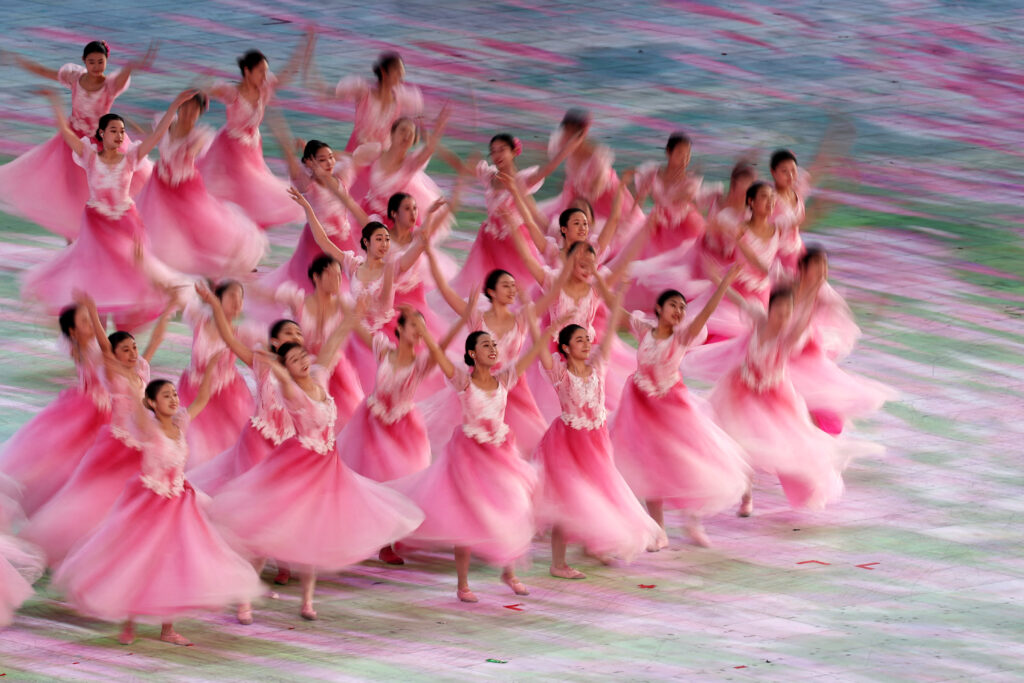Chinese security officials said Tuesday they had implicated three US “secret agents” in cyberattacks during February’s Asian Winter Games in the northeastern city of Harbin, offering a reward for information on the alleged spies.Harbin police released a statement on Weibo accusing three US National Security Agency (NSA) agents of attacks on “key information infrastructure”.It named the individuals as “Katheryn A. Wilson, Robert J. Snelling and Stephen W. Johnson”, working in the NSA’s Office of Tailored Access Operations, an intelligence-gathering unit on cyberwarfare.China’s computer virus watchdog said this month it had recorded more than 270,000 foreign cyberattacks on information systems related to the 9th Asian Winter Games in Harbin, the capital of Heilongjiang province, held from February 7 to 14.Attacks targeted the event’s information release and entry-exit management systems, as well as card payments and local infrastructure between January 26 and February 14, it said.Two-thirds of those attacks came from the United States, the watchdog said at the time.China’s foreign ministry on Tuesday condemned what it called “malicious cyber behaviour” and said it had “expressed its concerns to the US in various ways”.”We urge the US to stop unwarranted smears and attacks against China”, ministry spokesman Lin Jian said, adding that Beijing would take “necessary measures” to protect its cybersecurity.The US Embassy in Beijing did not respond to a request for comment.The Harbin police statement also accused the NSA agents of targeting Chinese companies including Huawei, which has faced US sanctions since 2019 over national security concerns.And state news agency Xinhua reported that teams had “uncovered evidence” implicating the University of California and Virginia Tech in the “coordinated campaign” on the Asian Winter Games.Officials said they would reward any person who could provide clues about the three individuals and “cooperate with public security organs in arresting” them.They vowed to “seriously crack down on cyberattacks and the theft of state secrets against China by foreign forces”.The statement did not specify what kind of reward it was offering, but China has for years offered residents cash for submitting tip-offs.Those found guilty of espionage can face life in prison or execution under Chinese law.In March, China’s ministry of state security said it had sentenced to death a former engineer for leaking state secrets to a foreign power.
Chinese security officials said Tuesday they had implicated three US “secret agents” in cyberattacks during February’s Asian Winter Games in the northeastern city of Harbin, offering a reward for information on the alleged spies.Harbin police released a statement on Weibo accusing three US National Security Agency (NSA) agents of attacks on “key information infrastructure”.It named the individuals as “Katheryn A. Wilson, Robert J. Snelling and Stephen W. Johnson”, working in the NSA’s Office of Tailored Access Operations, an intelligence-gathering unit on cyberwarfare.China’s computer virus watchdog said this month it had recorded more than 270,000 foreign cyberattacks on information systems related to the 9th Asian Winter Games in Harbin, the capital of Heilongjiang province, held from February 7 to 14.Attacks targeted the event’s information release and entry-exit management systems, as well as card payments and local infrastructure between January 26 and February 14, it said.Two-thirds of those attacks came from the United States, the watchdog said at the time.China’s foreign ministry on Tuesday condemned what it called “malicious cyber behaviour” and said it had “expressed its concerns to the US in various ways”.”We urge the US to stop unwarranted smears and attacks against China”, ministry spokesman Lin Jian said, adding that Beijing would take “necessary measures” to protect its cybersecurity.The US Embassy in Beijing did not respond to a request for comment.The Harbin police statement also accused the NSA agents of targeting Chinese companies including Huawei, which has faced US sanctions since 2019 over national security concerns.And state news agency Xinhua reported that teams had “uncovered evidence” implicating the University of California and Virginia Tech in the “coordinated campaign” on the Asian Winter Games.Officials said they would reward any person who could provide clues about the three individuals and “cooperate with public security organs in arresting” them.They vowed to “seriously crack down on cyberattacks and the theft of state secrets against China by foreign forces”.The statement did not specify what kind of reward it was offering, but China has for years offered residents cash for submitting tip-offs.Those found guilty of espionage can face life in prison or execution under Chinese law.In March, China’s ministry of state security said it had sentenced to death a former engineer for leaking state secrets to a foreign power.
